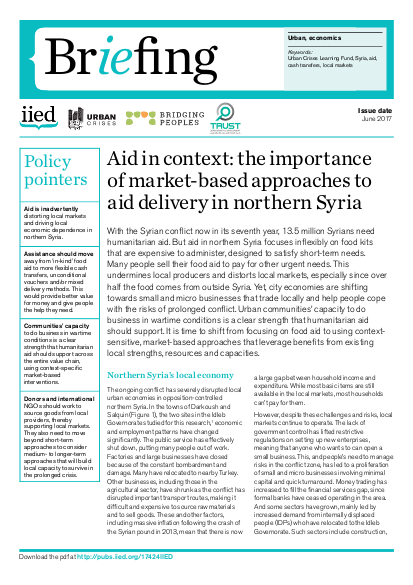
With the Syrian conflict now in its seventh year, 13.5 million Syrians need humanitarian aid. But aid in northern Syria focuses inflexibly on food kits that are expensive to administer, designed to satisfy short-term needs. Many people sell their food aid to pay for other urgent needs. This undermines local producers and distorts local markets, especially since over half the food comes from outside Syria. Yet, city economies are shifting towards small and micro businesses that trade locally and help people cope with the risks of prolonged conflict. Urban communities’ capacity to do business in wartime conditions is a clear strength that humanitarian aid should support. It is time to shift from focusing on food aid to using contextsensitive, market-based approaches that leverage benefits from existing local strengths, resources and capacities.
Links
Resource collections
- Innovation
- UN Habitat - Urban Response Collection
- Urban Response - Urban Crisis Preparedness and Risk Reduction
- Urban Response Collection - Community Engagement and Social Cohesion
- Urban Response Collection - Economic Recovery
- Urban Response Collection - Environment and Climate Change
- Urban Response Collection - Housing, Land and Property
- Urban Response Collection - Urban Crisis Response, Recovery and Reconstruction
- Urban Response Collection - Urban Resilience